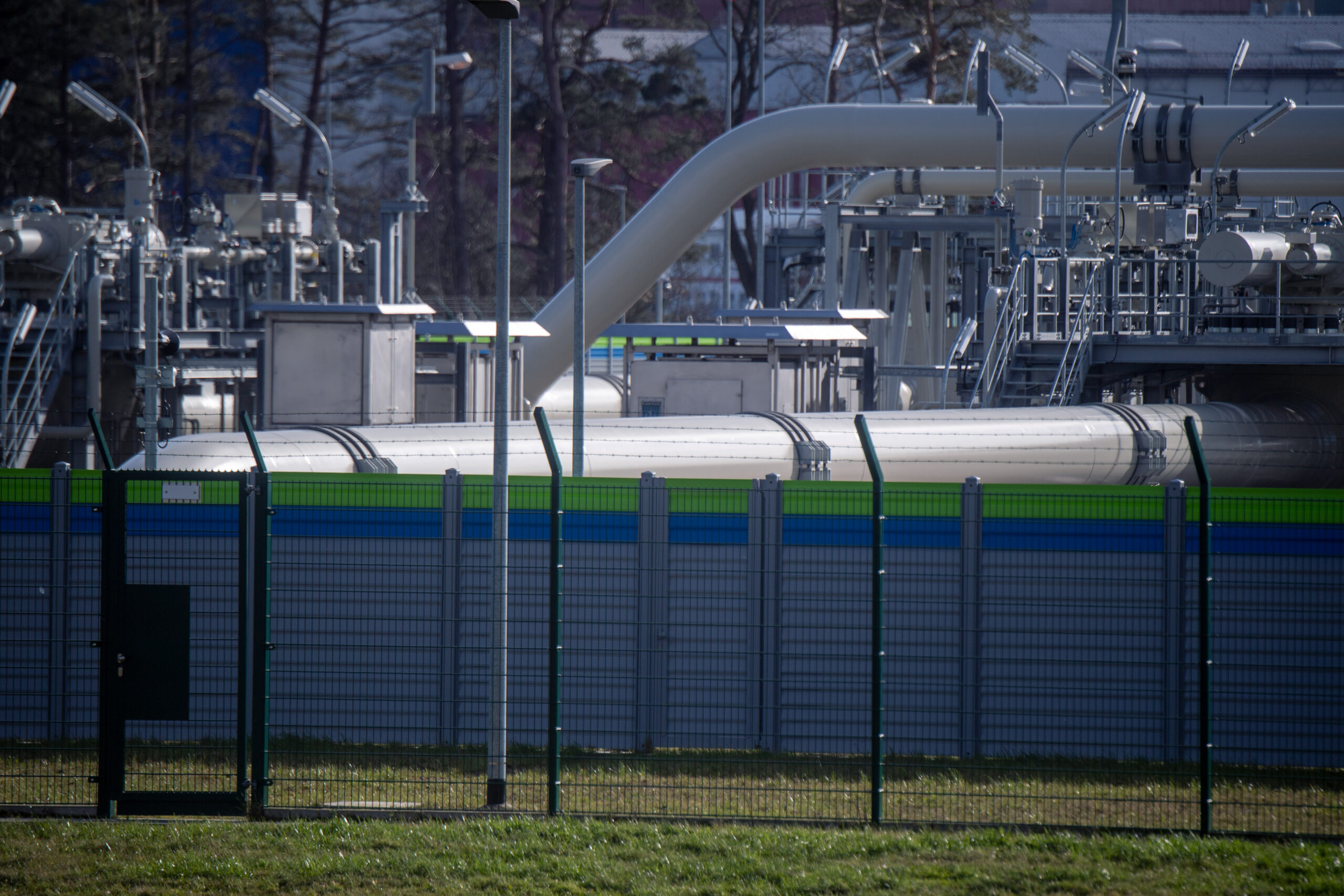Germany has taken steps to halt the process of certifying the Nord Stream 2 gas pipeline from Russia, Chancellor Olaf Scholz said Tuesday, as the West started taking punitive measures against Moscow over the Ukraine crisis.
Scholz said his government made the decision in response to Russian President Vladimir Putin’s recognition of the independence of two breakaway regions in eastern Ukraine that he said marked a “serious break of international law.”
“Now it’s up to the international community to react to this one-sided, incomprehensible and unjustified action by the Russian president,” he told reporters in Berlin, adding that it was necessary to “send a clear signal to Moscow that such actions won’t remain without consequences.”
The decision is a significant move for the German government, which had long resisted pulling the plug on the project despite pressure from the United States and some European countries to do so.
Washington has for years argued that building another pipeline bringing natural gas from Russia to Germany increases Europe’s reliance on Russian energy supplies.
U.S. officials have also warned that Nord Stream 2 poses risks to Ukraine and Poland because it could allow Russia to stop pumping gas through those countries.
Lviv, dubbed Ukraine’s safe haven, braces for conflict ahead of potential Russian invasion
Scholz predecessor Angela Merkel had defended the project, as have prominent figures in Scholz’s centre-left Social Democratic Party.
Trending Stories
Canada must work on ‘healing’ from pandemic, convoy unrest, says Trudeau ahead of key vote
Bail decision for ‘freedom convoy’ organizer Tamara Lich expected today
“The situation now is fundamentally different,” Scholz said Tuesday, explaining that the government had decided to withdraw a report on the impact that the pipeline – which hasn’t begun operating yet – would have on the security of Germany’s gas supplies.
“That may sound technical, but it’s a necessary administrative step without which the certification of the pipeline cannot happen now,” he said.
Scholz added that Germany’s Economy Ministry would reassess the situation in light of the latest developments.
“That will certainly take time, if I may say so,” he added.
Germany meets about a quarter of its energy needs with natural gas, a share that will increase in the coming years as the country switches off its last three nuclear power plants and phases out the use of coal. About half of the natural gas used in Germany comes from Russia.
The government aims to end the use of all fossil fuels in Germany by 2045.
Ukrainian Foreign Minister Dmytro Kuleba praised Germany for suspending certification of the pipeline.
“This is a morally, politically and practically correct step in the current circumstances,” he wrote on Twitter. “True leadership means tough decisions in difficult times. Germany’s move proves just that.”
© 2022 The Canadian Press



